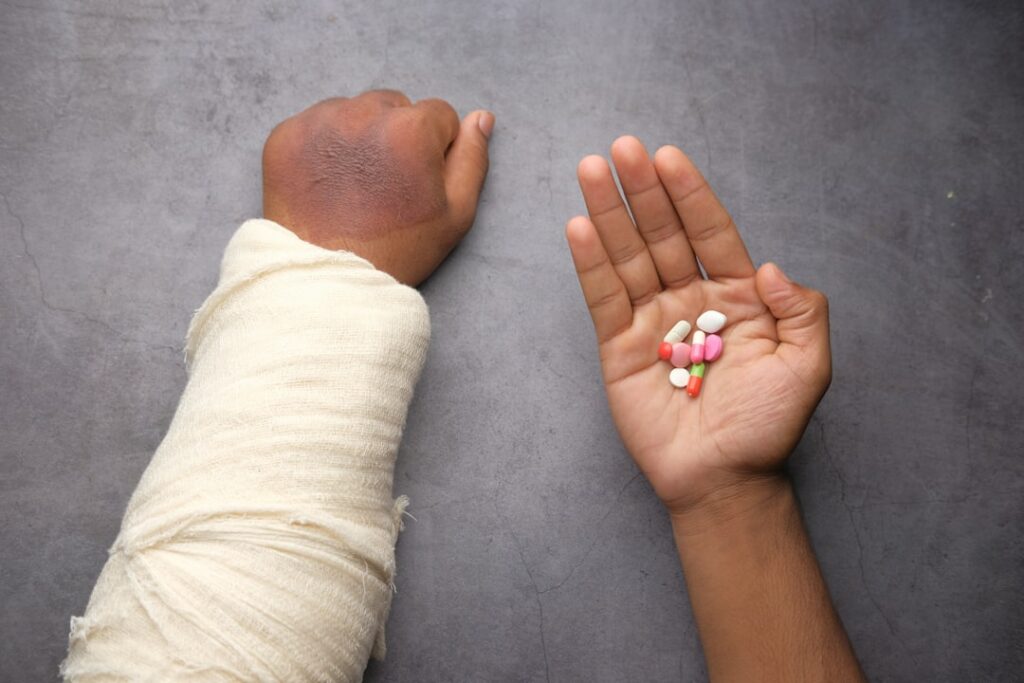
Suffering from a personal injury is challenging, especially if another person’s negligence caused the accident. While you can always claim compensation, navigating the intricacies of the process may take some work. This article lists some essential legal tips for dealing with personal injuries.
Get Medical Help
One of the first things you need to do when dealing with a physical injury is to get medical help immediately. Before anything else, you must ensure that you are all right and that the appropriate medical personnel address your injuries. The seasoned personal injury lawyers at GDH also recommend getting copies of the reports you acquire when you seek medical attention. This will strengthen your case later on. You should also keep copies of the medical bills you have to settle to get better from your injuries because these may be used to calculate the potential cost of your claim. Remember that it can be challenging to file for a claim without the necessary supporting records, such as your medical and receipts.
Report the Incident Immediately
The next thing you need to do is report the accident as soon as possible. This way, there will be a record of what happened while the incident is still fresh from the memory of witnesses. For example, if you sustained severe injuries from a slip and fall accident within the premises of someone else’s property, and there was no appropriate hazard warning, then you may be eligible for compensation, provided you report the incident to the property manager as soon as possible. If someone sees the accident, a witness statement may prove beneficial, as included in the report. Failing to report the incident to the proper authorities may invalidate your claim later.
Preserve Evidence
Ensure that any evidence related to the incident is kept and maintained. Apart from your medical records, receipts, and the incident report, any photos of the scene can help strengthen your case. Pictures of your injuries and the damage to the property may also be included. Gathering sufficient witness statements may also be beneficial. Remember to compile all these pieces of evidence, storing them in an easily-accessible area. This will make it easy for you to find them when you need to present them. It is also a good idea to make digital copies of these pieces of evidence to ensure that you still have something to back it up if anything happens to the hard copy.
Initiate Communication Cautiously
When initiating any form of communication with the other party and the insurance company, make sure that you are cautious with what you say. For instance, apologizing for the incident may be misinterpreted as an admission of fault, rendering your claim invalid later. For this reason, it is better to let a legal professional handle all the necessary communication with the other party to ensure you will not be put in hot water.

You should also avoid signing any documents without a legal practitioner present. Specific clauses may state that you admit fault, rendering your claim ineligible.
Understand Your Rights
You can only assert your rights if you understand them fully. For this reason, take the time to know your rights as a personal injury victim. For instance, you have the right to be compensated for your injuries, but the amount you may be eligible for may vary depending on the rules and legislation in your jurisdiction. Some laws differ from one place to another, so it is worth noting what is applicable in your state. Familiarize yourself with the key terms affecting your case, such as negligence and liability, so you can use them whenever appropriate. You should also know the statute of limitations in your area to see the timeframe for filing a claim. When you understand your rights as an injured person, you can also uphold them accordingly.
Hire a Lawyer
When you are injured because of another’s negligence, the best thing you can do is hire a legal practitioner who will advocate for your rights. While many legal professionals are available, not all may have the right capabilities to help you with your claim accordingly. For this reason, opt for a lawyer with ample experience handling the same cases as yours. This means that during your research, look into the past cases handled by the lawyer, taking note of personal injuries in some of them. Also, check their credentials and experience to ensure you entrust your case to the right hands. Many lawyers also serve on a contingency fee basis, meaning they only get paid if you acquire favorable results from your case. It is also worth noting this when deciding to hire a lawyer.
Consider Alternative Dispute Resolution
There are instances wherein you may need to file a case because of the personal injury you suffered.

This is often true when a particular settlement is not reached. However, before it goes to that point, it is best to consider alternative dispute resolution methods such as arbitration or mediation. These are less stressful methods of settling cases out of court but require proper communication and cooperation from both parties. Before you agree to any settlement offer, consult your legal advocate to ensure you get just compensation for your injuries.
Be Patient
Finally, be patient. Navigating the intricacies of a personal injury claim can be quite complex and sometimes, frustrating. The process may take longer than expected, but it is during this time that you should focus on healing and getting back on your feet. Rest assured that there will always be individuals who will advocate for your rights, such as a reputable legal practitioner by your side.
When an unfortunate incident causes you harm, seek medical attention immediately, reporting the accident promptly. Preserve any evidence you may have and cautiously initiate any communication with the other party or insurance parties. You should also take the time to understand your rights or get help from a lawyer to consider alternative dispute resolutions as deemed appropriate. Just be patient and trust that everything will work out for good, and you will be on your way to thriving after going through a personal injury.












